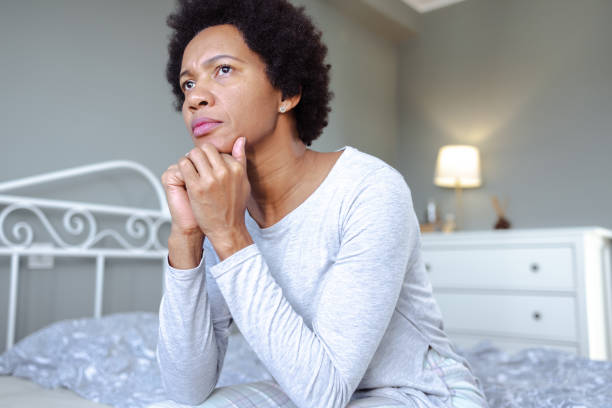
Common depression symptoms include morning depression. Causes and coping methods are here. Depression symptoms and severity vary with the time of day for many individuals. If your depression symptoms worsen in the morning, you may have “morning depression.”
Morning depression is a typical mental health symptom, not a diagnosis. Morning depression is called diurnal mood variation or depressed symptom variation in medicine.
Diurnal mood fluctuation describes depressive symptoms’ intensity changes during the day. Diurnal mood fluctuations may cause more severe depression symptoms in the afternoon and evening. Individuals’ depression symptoms peak at different times of the day.
You’re not alone if morning depression is worse. Research indicates that individuals with depression endure diurnal mood swings and more severe symptoms in the morning. Morning depression may be treated like other depression symptoms.
What Are The Symptoms Of Morning Depression?
Morning depressives have worse general depression symptoms. Morning depression symptoms and intensity vary. However, certain symptoms are significantly elevated:
- hypersomnia (excessive sleepiness or oversleeping)
- trouble waking up
- fatigue
- Low energy or mental fog
- Disinterest in morning activities
- A sense of profound melancholy, emptiness, or despair
- Emotional irritation, crankiness, or frustration
Morning depression may make getting out of bed, making coffee, and eating breakfast seem difficult. Things you used to like might now be boring or frustrating. Mood symptoms like profound melancholy might overwhelm.
Morning depression is common and acceptable. Depression symptoms at their worst in the morning may make it hard to start the day, which might affect your ability to operate.
RELATED: Is It Possible To Be Depressed But Not Sad?
What’s Behind Morning Depression?
Current medical knowledge links morning depression and diurnal mood variations to circadian rhythm. Circadian rhythm is your 24-hour sleep-wake cycle. It controls your sleep and waking times. Your circadian rhythm is affected by:
- Light and darkness instruct your brain when to wake up and sleep, which sends messages to your body.
- Hormones, like cortisol and melatonin: Your body creates more cortisol in the morning to wake you up. Your body creates more melatonin at night, which induces sleep.
Work or school hours, stress, anxiety, and exercise affect your circadian rhythm. In addition to sleeping and waking, the circadian rhythm affects:








